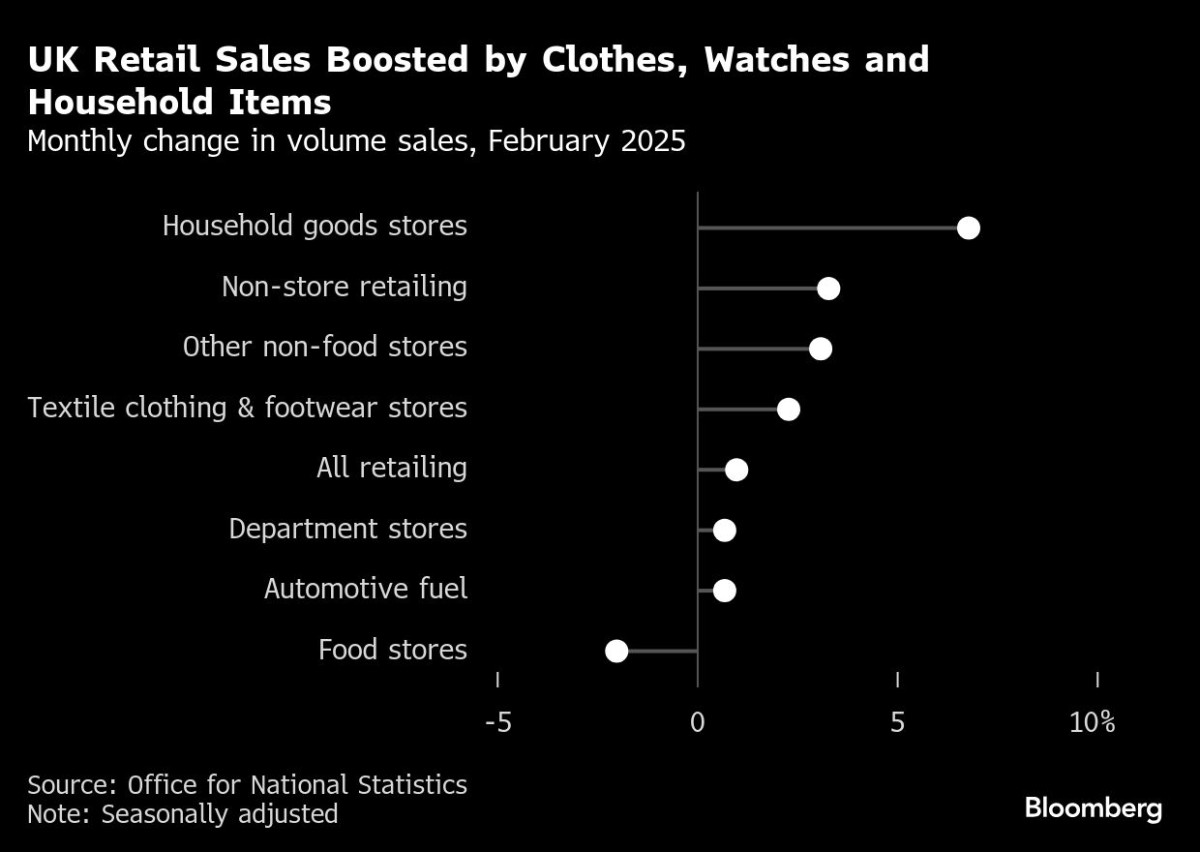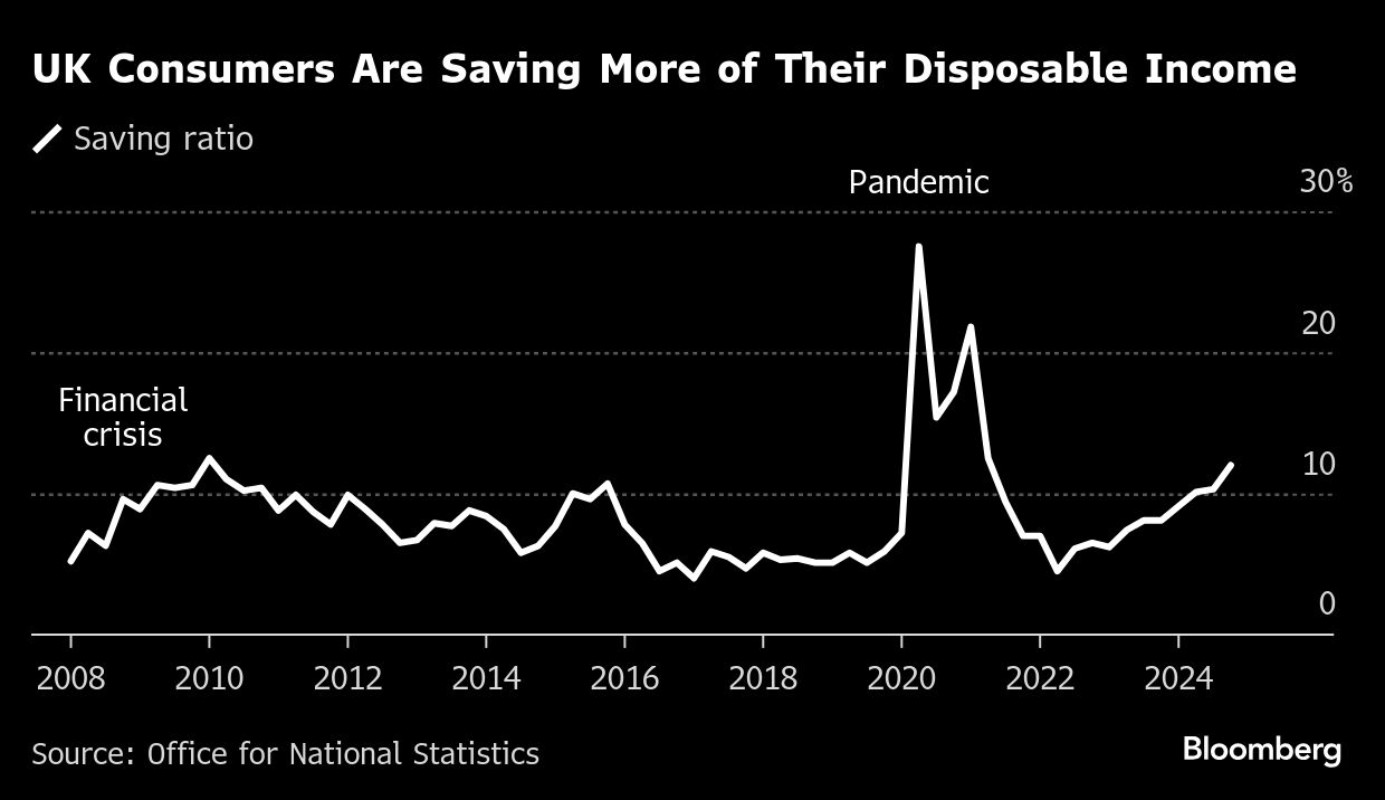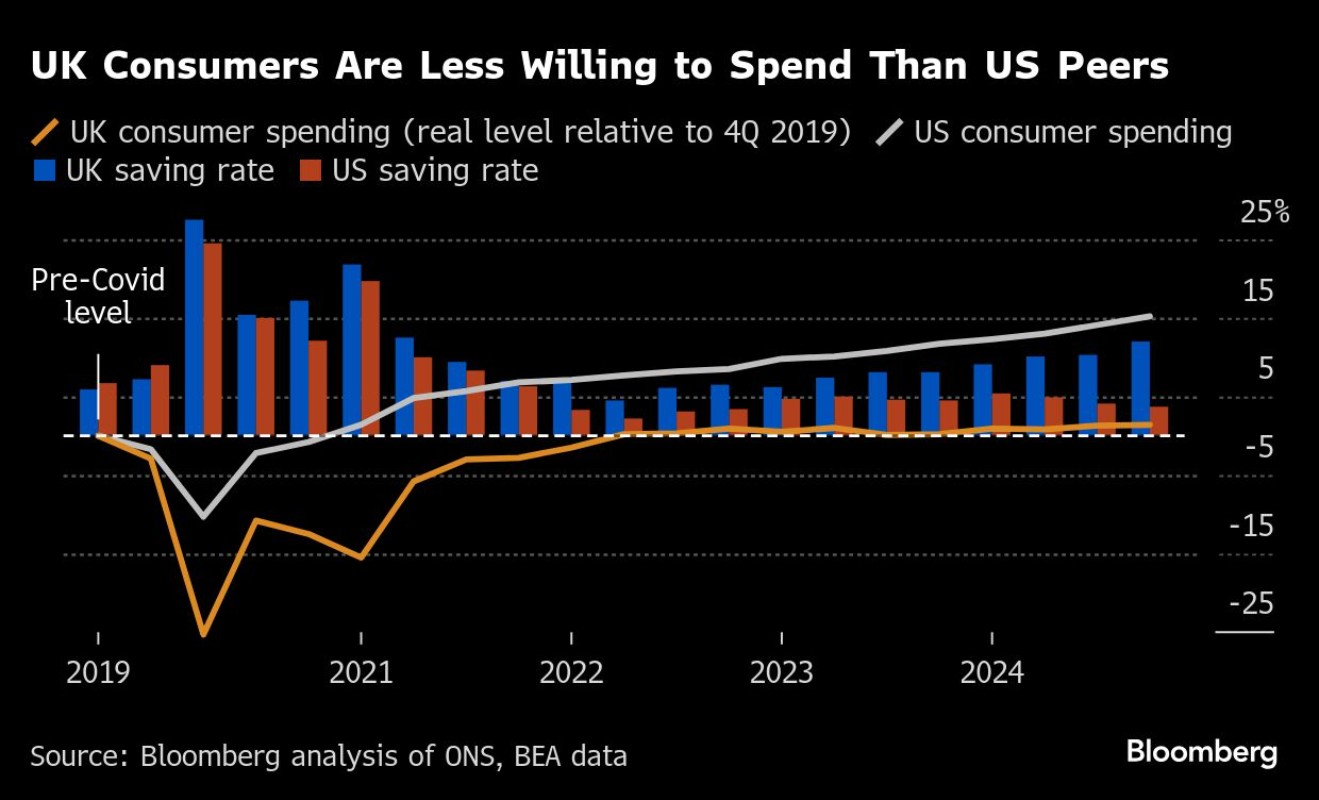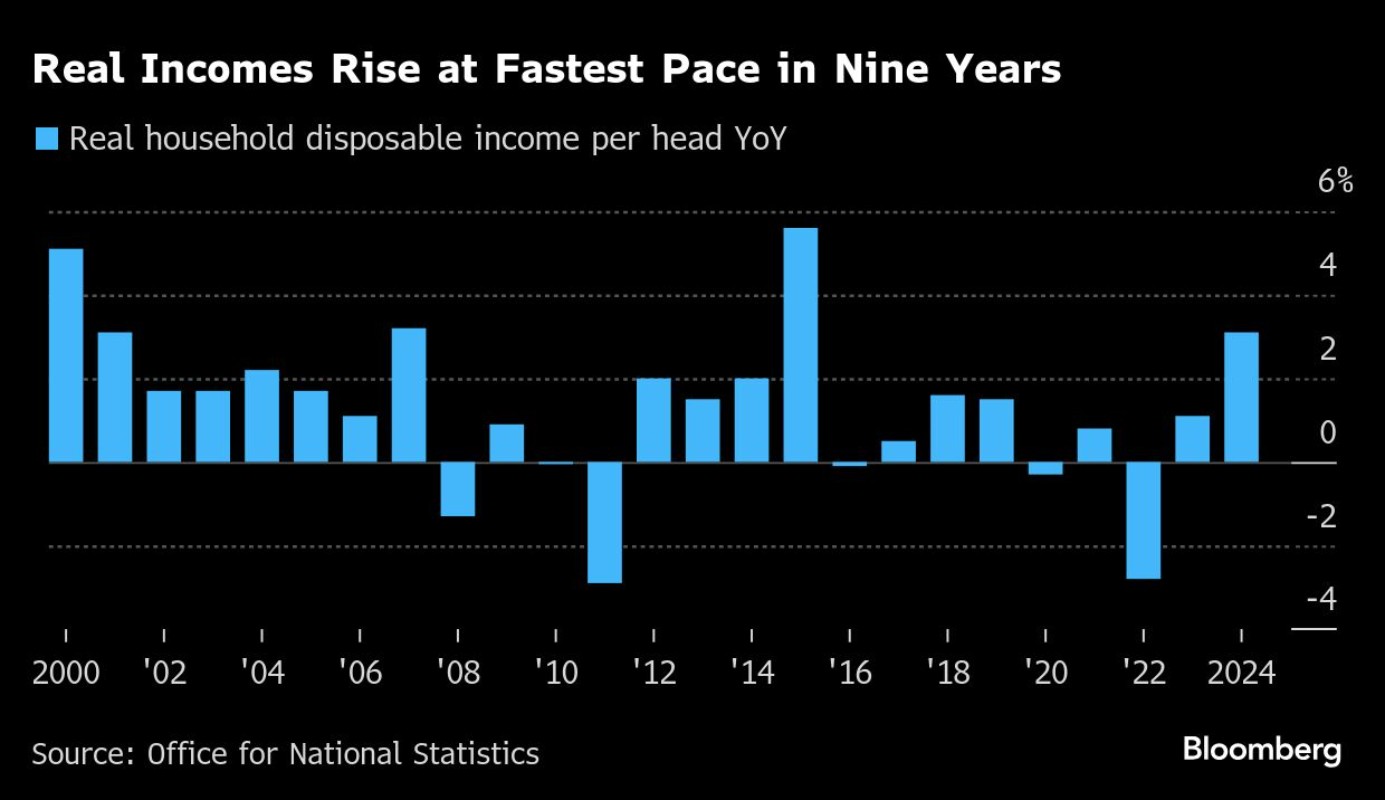
(March 28): UK retail sales have risen strongly since the start of 2025 in a sign that households are beginning to spend the pot of savings they built up last year.
The volume of goods sold in stores and online rose 1% in February following a revised 1.4% surge in January, the Office for National Statistics (ONS) said on Friday. Economists surveyed by Bloomberg had expected a 0.4% drop.
The figures showed sales of household goods climbing almost 7%, the largest increase since April 2021. Jewellery, watches and clothes also saw a bounceback in demand.
It adds to evidence that the UK economy is starting to shake off the stagnation that has dogged the Labour government since it came to power last summer.
Separate data published by the ONS on Friday showed that disposable incomes per head rose 1.7% in the final quarter of 2024, at the end of a year of strong wage growth. Britons chose to save an historically large portion of their income — with the ratio jumping to 12% in the final quarter — but the retail sales data suggests there may have been some loosening of purse strings since the turn of 2025.
“There are finally some signs that the UK consumer is starting to come back to life,” said Thomas Pugh, an economist at RSM UK. “Strong real household income growth should continue to drive a gradual increase in retail sales this year.”
Cautious consumers held back the UK economy last year as they put more cash aside to take advantage of higher savings rates and after a string of economically destabilizing crises both domestically and globally in recent years. This is in stark contrast with their US counterparts whose spending helped to underpin robust growth in the world’s largest economy. US consumer spending is now around 15% above its pre-Covid levels, while in the UK, it has barely risen.
Consumers, whose spending drives two-thirds of the British economy, are facing a challenging outlook. Escalating trade disputes are threatening the global economy as US President Donald Trump expands his tariffs war. At home, inflation is quickening and Chancellor of the Exchequer Rachel Reeves may have to raise taxes later this year to keep the public finances on track. On Wednesday, her fiscal watchdog halved its 2025 growth forecast to just 1%.
However, the economy is still holding up better than feared and consumers may unleash growth if they ease back on their historically high propensity for saving. Private-sector activity is at a six-month high, vacancies are up for the first time since 2022 and job losses have failed to materialise as feared.
The data “suggests households experienced the strongest real income growth in nine years,” said Ruth Gregory, the deputy chief UK economist of Capital Economics. Families chose to save more rather than spend but the “better news on retail sales in the first quarter provides a glimmer of hope that that might be changing,” she added.
Next plc, sometimes considered a bellwether for the UK retail sector, upgraded its outlook Thursday on the back of a better-than-expected performance at the start of the year.
Uploaded by Tham Yek Lee
- Xi's showdown with Li Ka-shing threatens China’s pro-business push
- Tan Kean Soon steps down as T7 Global executive deputy chairman, board says no operational impact
- Company auditor loses RM1.29m to investment scam
- Perak emerges as Malaysia's No 1 sweet corn producer
- Huawei posts surprise loss after aggressive tech research




